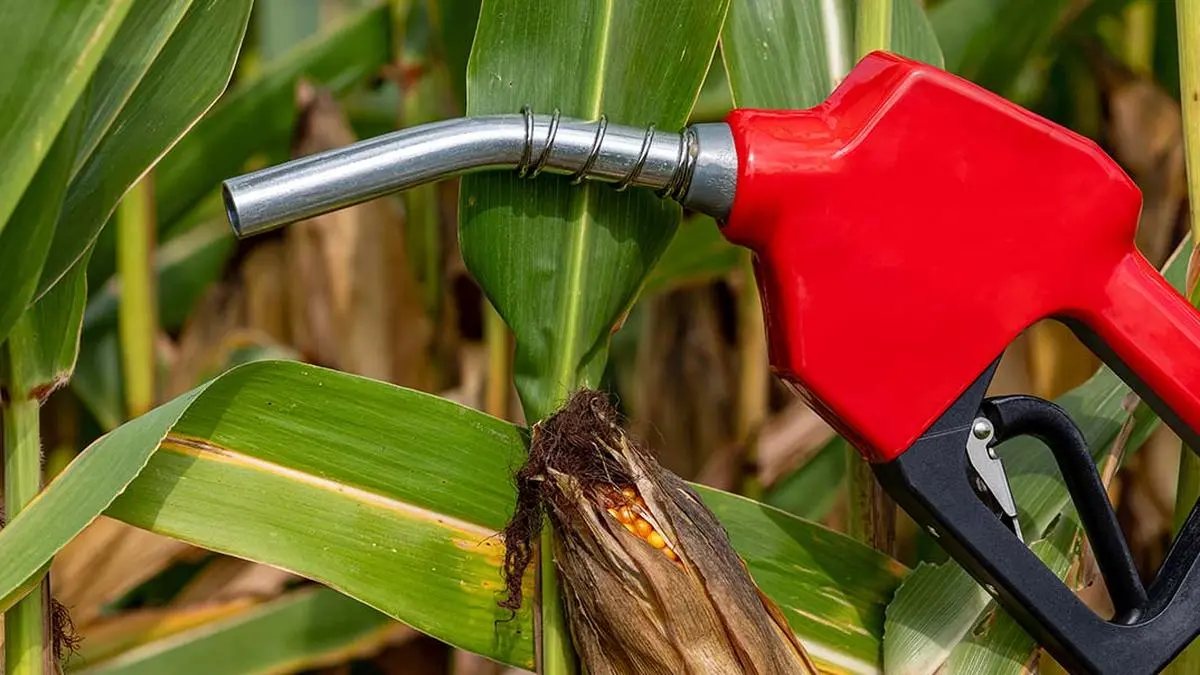HinduBusinessLine
1d
303

Image Credit: HinduBusinessLine
India’s ethanol industry under threat from US trade pressure
- The United States is pressuring India to remove import barriers on fuel ethanol, which threatens India's domestic ethanol industry.
- India's policy includes restrictions on fuel ethanol imports to protect its domestic industry.
- This pressure undermines India's circular economy and the viability of domestic ethanol producers and farmers.
- India has made significant progress in domestic ethanol production, achieving a blending rate of 19.6% in January 2025.
- The country is on track to achieve its 20% blending target by October 2025, five years ahead of schedule.
- The ethanol blending program has led to substantial economic benefits, including reducing crude oil imports and CO2 emissions.
- It has also benefited rural economies, providing stable prices for agricultural produce and creating jobs.
- The industry has invested over ₹25,000 crore in expanding distillery capacity to meet future targets.
- State-owned oil refiners plan to increase ethanol purchases by 50% in the current supply year.
- The ethanol program has stabilized sugar prices and encouraged crop diversification.
- Trade negotiations, led by Commerce Minister Piyush Goyal, could impact India's energy security and rural economy.
- The outcome of these negotiations will have significant implications for India's bioenergy sector and its goals of self-reliance.
- The discussion reflects a conflict between short-term trade interests and long-term energy security and rural development goals.
- The Indian government aims to balance trade concessions with protecting its farming community and promoting sustainability.
- There is ongoing monitoring of how India will prioritize its energy security and rural economy in trade decisions.
- The trade talks hold importance for India's bioenergy sector and broader self-reliance and sustainability objectives.
Read Full Article
9 Likes
For uninterrupted reading, download the app